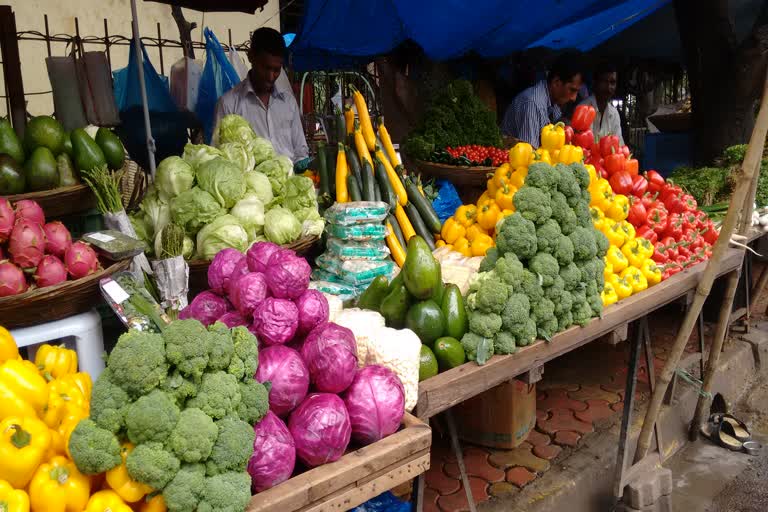New Delhi: Retail inflation for industrial workers eased to 5.27 per cent in November compared to 5.91 per cent in October, mainly due to lower prices of certain food items.
"Year-on-year inflation based on all items stood at 5.27 per cent for November, 2020 as compared to 5.91 per cent for the previous month (October) and 8.61 per cent during the corresponding month of the previous year," a labour ministry statement said.
It said that the food inflation stood at 7.48 per cent in November as against 8.21 per cent in the previous month. Food inflation was at 9.87 per cent in the year-ago period.
The retail inflation measured in terms of all-India CPI-IW (Consumer Price Index for Industrial Workers) for November increased by 0.4 points and stood at 119.9 points.
The maximum upward pressure in the current index came from Food & Beverages group contributing (+) 0.25 percentage points to the total change.
At an item level, prices of Rice, Arhar Dal, Fish Fresh, Milk, Mustard Oil, Soyabean Oil, Sunflower Oil, Onion, Potato, Chillies Dry, Tea Leaf and Cooked Meal pushed the index reading higher.
However, this increase was checked by fall in prices of Poultry (Chicken), Tomato, Brinjal, Carrot, Cauliflower, Ginger, Gourd, Green Coriander Leaves, Lady Finger, Peas and Orange, among others.
At a centre level, Puducherry recorded the maximum increase of 4 points. Among others, 3-point increase was observed in at 4 centres, 2-point rise at 7 centres and 1 point increase at 30 centres.
On the contrary, Guntur, Bhilai, Udham Singh Nagar and Vadodara recorded a maximum decrease of 2 points each. A fall of one point was observed in 17 centres. In rest of the 25 centres, the indices remained stationary.
Read more: EPFO begins crediting 8.5 pc interest for 2019-20, to reflect in EPF accounts from Fri
"The rise in index coupled with fall in annual inflation will have a dual impact in terms of increasing income and purchasing power of the workers. The effect is mainly due to vegetables which had good supply in the market and provided respite to the consumers," Labour Minister Santosh Gangwar said.
Director General of the Labour Bureau D S Negi said the rise in the index during November and fall in inflation rate are in line with other price indices compiled and released by other government agencies.
The rise in the index was mainly on account of increase in prices of Rice, Arhar Dal, Fish Fresh, Milk, Mustard Oil, Soyabean Oil, Sunflower Oil, Onion, Potato, Chillies Dry, Tea Leaf, Cooked Meal, Cooking Gas, and Household Goods & Services.
The CPI-IW is the single-most important price statistics which has financial implications.
It is primarily used to regulate the dearness allowance of government employees and workers in industrial sectors. It is also used in fixation and revision of minimum wages in scheduled employments besides measuring the inflation in retail prices.
The Labour Bureau has been compiling the CPI-IW every month on the basis of retail prices collected from 317 markets spread over 88 industrially important centres in the country.
(PTI)



